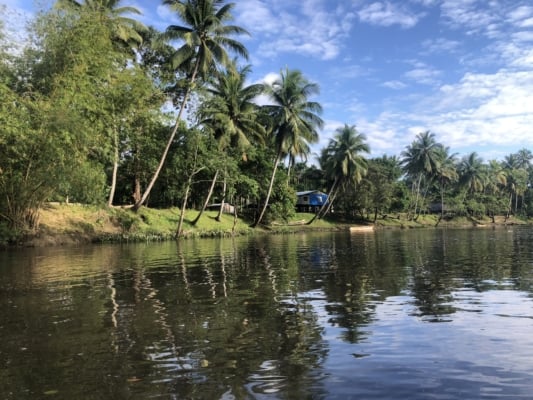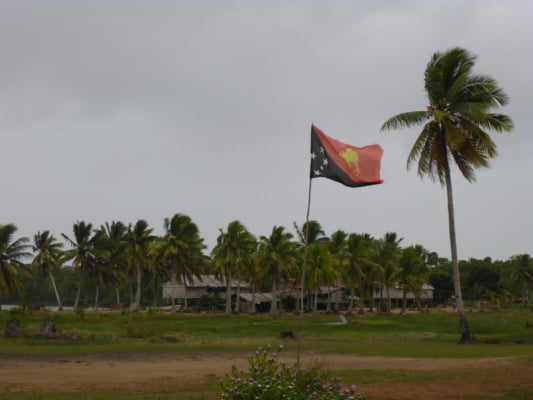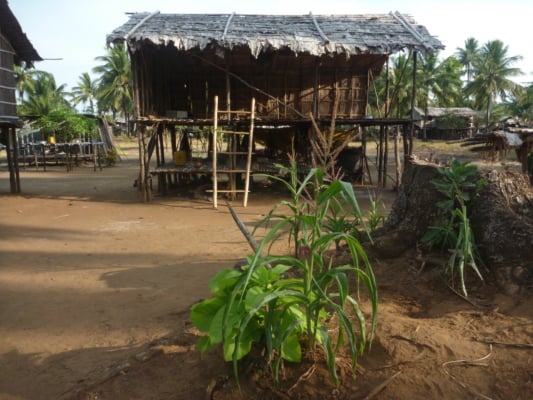In this month’s Leadership Observatory, DLP provide six key takeaways for policymakers, practitioners and researchers based on new evidence. In the wake of the recent COP26 conference, and Barbados Prime Minister Mia Mottley’s provocative question of “When will leaders lead?“, the world is, perhaps, waking up to the crucial importance of effective, collaborative, compassionate developmental leadership. But how exactly do leaders lead collaboratively? How can leaders with power and privilege support local leadership from groups with less power without muddling the situation through false assumptions or incorrect knowledge?
The withdrawal of aid workers during the Covid-19 pandemic has posed enormous challenges, but has also opened up spaces for transformative local leadership to emerge.
Roche et al. looked at the impact of Covid-19 on disability activism in Indonesia, as well as on communities in Solomon Islands and villages in South Fly, Papua New Guinea. In Indonesia, for example, the increased use of online communication has bridged gaps between disability activists in the capital of Jakarta and local activists elsewhere. While the need for development assistance has never been greater, development workers must avoid reverting back to occupying spaces in unhelpful ways, and protect the spaces that have opened up for local leadership.
Diversity has immense potential to improve performance via information sharing, but it is essential to prevent stereotype-based bias that can disrupt the flow of information sharing.
Knippenberg and van Ginkel argue that effective team leadership is crucial for helping diverse teams achieve their full potential. This can be through creating a sense of inclusion that allows team members to feel safe contributing their unique perspective, or even simply making members aware of the improved performance outcomes they can achieve by drawing on diversity. Such work is particularly relevant in light of increasing awareness about the importance of “proximate leadership” in fixing broken systems – leadership by people who have meaningful connections with or who identify as members of groups who have been marginalised.
Pacific Island women’s seasonal work in Australia and New Zealand can develop their self-efficacy and identity as leaders, supporting them to benefit their communities when they return home, but it is important for host countries and employers to support rather than hinder them in this.
Howard argues that employers and host countries can support Pacific women seasonal workers’ developmental leadership potential through supportive and sensitive leadership training, understanding the challenges and risks they face and advocating for their leadership. It is also important to be aware of entrenched ideas about gender in host countries, which may pigeonhole female seasonal workers to certain roles or make judgements about them for being away from their families.
Effective leadership is not only about personal qualities, but also about shared relations, connections, practices and routines, as well as institutional factors and consistency.
Eva, Wolfram Cox, Tse and Lowe discuss the need for leadership development to move beyond focus on individual leadership. They outline the key schools of thought on collective leadership, and suggest examples for how these can be used alongside each other to achieve the most effective leadership possible. Leaders also face increasing complexity in their work due to advanced technology and global challenges, which can be difficult to manage; Zucker and Rowell provide some suggestions for how to do so.
Women’s business leadership in the Pacific Islands has seen pockets of progress, but policy must be carried out strategically to fully realise Pacific women’s potential to lead in business.
The Pacific Private Sector Development Initiative points out many Pacific organisations making progress in women’s business leadership achieved this through strategic intent. This includes, for example, developing gender and diversity policies and targets, creating leadership pathways for women, promoting social norm change, flexibility, enhanced maternity leave, and childcare support. The strong backing of people in high-level leadership positions seems to be particularly important in increasing women’s business leadership.
The significant power of traditional Oceanic diplomacy has been undervalued in development work.
Carter, Fry and Nanau spotlight the potential of Oceanic diplomacy to address both national and local problems. These practices, however, emphasise respect and are unlikely to work for governments or development practitioners without a genuine understanding of Oceanic diplomacy and real interest in engaging with it.
Sign up to receive the Leadership Observatory directly to your inbox.










